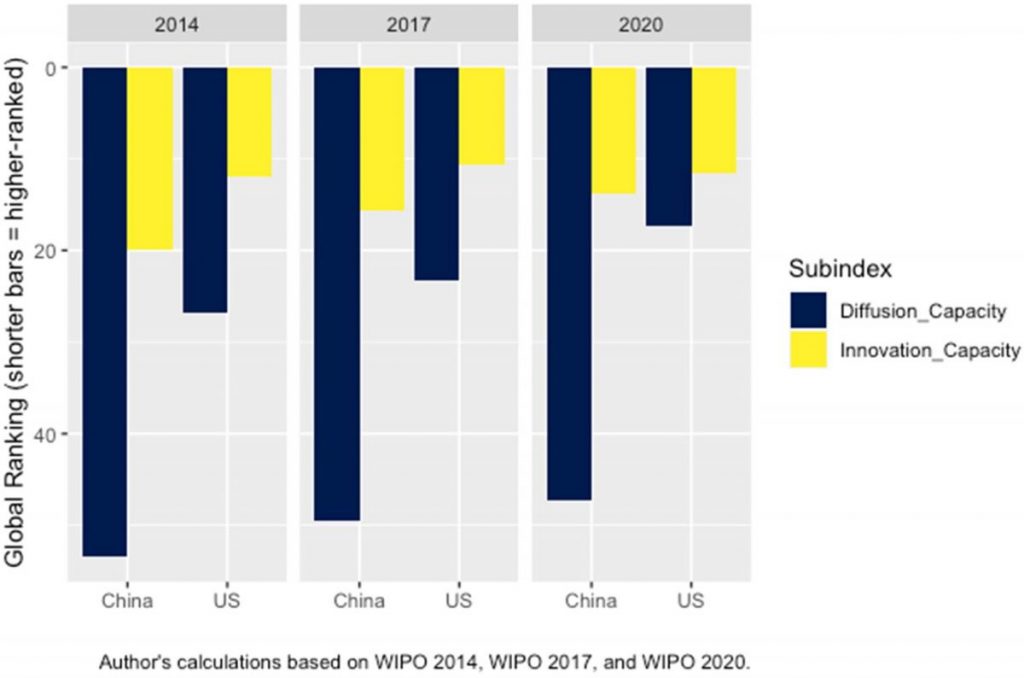The U.S. has a tendency to overrate China's likelihood of succeeding in the competition for AI breakthroughs.
In Brief
The U.S. appears to be overestimating China's standing in the race for scientific and technological dominance, while China has achieved considerable advancements in artificial intelligence technology. .
For the United States to maintain its competitive edge in AI, it's crucial to persist in investing in research and development.
This situation places significant pressure on the U.S., steering numerous nations towards China in hopes of capitalizing on the advantages of aligning with a major science and technology partner.
The U.S. might be significantly misjudging China's capabilities in scientific and technological competition. The obstacles in the widespread adoption of new innovations suggest that China may face a fate reminiscent of the USSR's technological decline.

A lot hinges on whether it will be the U.S. or China that emerges as the foremost scientific and technological power over the next decade. The outcome of this technological race will shape which ecosystems flourish, which educational institutions rise to prominence, and where the brightest minds will be directed for their studies. It will also influence where investments in AI startups should be made and whose machine learning technologies will set the benchmark. The implications are vast. China's decade-long surge in scientific and technological capabilities has convincingly demonstrated its vast innovative potential.
This development exerts considerable pressure on the U.S., prompting its experts to grapple with the possibility of losing their status as a leading scientific and technological superpower within the next ten years.
- Consequently, many nations are leaning towards China, seeking the benefits of becoming part of its scientific and technological ecosystem.
- Reassessing China's advancement in light of imbalances in the distribution of scientific and technical capabilities.

The flawed evaluation of China's technological prospects is often based solely on its perceived 'innovative power'—that is, its capacity to innovate. showed the following :
- A more nuanced understanding, incorporating China's 'diffusion power'—its ability to effectively adopt and disseminate innovations—greatly undermines the country's chances of ascending to a leading role in the realms of science, AI, VR/AR, web3, and other technological domains within the next decade.
- This not only reveals weaknesses but also highlights China's significant shortcomings in this regard, comparing it to the technological failures faced by the USSR, which led to a collapse despite its earlier achievements.
- A detailed analysis of China’s “diffuse power” China's growing 'diffusion deficit' reflects the Chinese Communist Party's commitment to solidifying its influence over key sectors, including the economy, legal system, science, and technology.
- Professor Jeffrey Ding draws from specific examples to support his viewpoint.
When assessing the potential for groundbreaking scientific advancements, it's crucial to prioritize a nation's capability to effectively disseminate and implement innovations. A marked disparity between a country's innovative prowess and its diffusion capabilities may lead to a misleading portrayal of its long-term economic growth potential. shows the bias in the assessments Professor Geoffrey Ding contends that evaluations based purely on innovation capabilities—the diffusion-driven perspective—indicate that China is still far from achieving superpower status in the field of science and technology.
China Prohibits Companies from Using ChatGPT Following a Controversial 'True News' Incident
Read more related articles:
Disclaimer
In line with the Trust Project guidelines Damir leads the team as a product manager and editor at Metaverse Post, focusing on topics like AI/ML, AGI, LLMs, the Metaverse, and Web3. His writing garners a massive readership of over a million monthly visitors. With a decade of experience in SEO and digital marketing, Damir is a recognized authority featured in publications such as Mashable, Wired, Cointelegraph, The New Yorker, Inside.com, Entrepreneur, BeInCrypto, and many others. He travels between the UAE, Turkey, Russia, and the CIS regions as a digital nomad. Damir holds a bachelor's degree in physics, which he believes has equipped him with the analytical skills essential for success in the constantly evolving online landscape.







